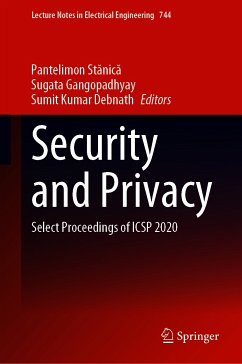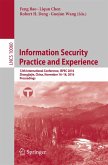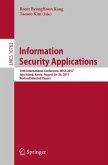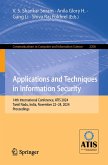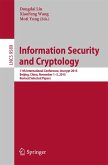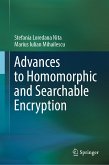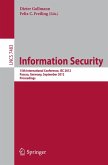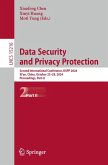This book consists of refereed selected papers from the International Conference on Security & Privacy - ICSP 2020. The book is focused on the state-of-the-art developments of network security, secure cryptographic protocols, post-quantum cryptography, quantum cryptography, block-chain and cryptocurrency, IoT security and privacy, cloud security, machine learning in cybersecurity, and other disciplines related to security and privacy. In this book, a wide variety of basic security primitives are discussed along with recent developments in some advanced topics like functional encryption, two-party/multi-party computation, bitcoin, cryptocurrency, and post-quantum security.
Dieser Download kann aus rechtlichen Gründen nur mit Rechnungsadresse in A, B, BG, CY, CZ, D, DK, EW, E, FIN, F, GR, HR, H, IRL, I, LT, L, LR, M, NL, PL, P, R, S, SLO, SK ausgeliefert werden.
Hinweis: Dieser Artikel kann nur an eine deutsche Lieferadresse ausgeliefert werden.

